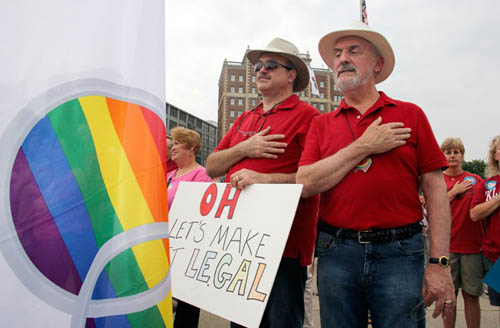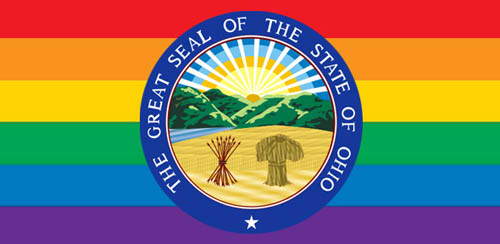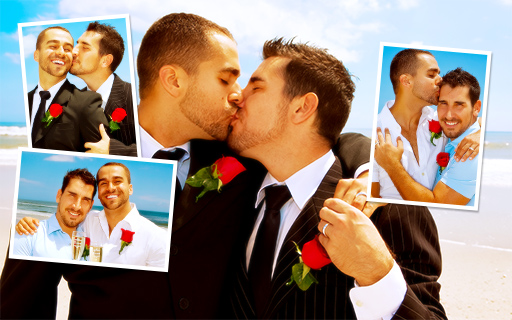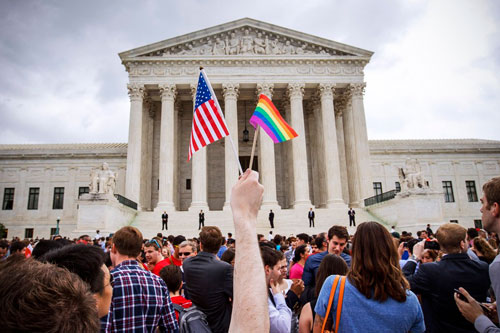Gay Marriage In Ohio
Ohio may be one of the most resistant states when it comes to gay marriage. While public opinion may not have always been on the positive side of the debate, things are changing.At Manplay.com, you can read about Ohio gay marriage laws, history, statistics & find out how it took the US Supreme Court to finally change legislation.
Ohio Gay Marriage History
When it comes to legalizing Ohio gay marriage, residents of Ohio were reluctant for a long time. While "gay activity" had been legal in Ohio since 1972, gay marriage took longer to become legalized. It took the US Supreme Court to finally change legislation. The Court's ruling in the case of Obergefell v. Hodges that denying marriage rights to gay couples was unconstitutional on all levels shot down Ohio's previous statutory and constitutional bans. These bans included the Defence of Marriage Act. On December 10th, 2003, the Ohio House of Representatives passed the Act, banning not only gay marriage in the state, but also recognition of any out of state gay marriages. On November 2nd, 2004, voters approved the Act, and it went into effect on December 2nd, 2004.

The landmark case that was responsible for the legalization of gay marriage in Ohio was that of Obergefell v. Kasich. In June 2013, a gay couple filed a lawsuit against the state of Ohio stating that it discriminated against and refused to recognize gay married couples who had obtained their legal marriage licences in other states where gay marriage is legal. This was especially important to the couple, because one of them was terminally ill. The couple wanted to be able to have Obergefell listed on his husband's death certificate as his surviving spouse. This would also allow him access to death and illness benefits available to widows and widowers. The judge in the case granted the couple's request in July of 2013, stating that for Ohio to refuse to acknowledge gay marriages that were legally obtained in other states was discriminatory. He demanded that the state officially recognize out of state gay marriages on death certificates.
The same judge made a very similar ruling in a case involving another gay couple around the same time. 4 other gay couples who had been married in other states filed a motion to have both parents' names on their childrens' birth certificates. The judge officially ruled that out of state marriages must be recognized in Ohio. The two cases were combined and brought before State Senate, where they ruled that the state's ban on gay marriage did not go against Ohio's constitution. This was on May 20, 2014. In January of 2015, the US Supreme Court combined Ohio's gay marriage constitutional cases with others from other states. The Court ultimately ruled in favor of gay marriage rights for all states' residents in June of 2015. This decision nullified all of Ohio's marriage bans, whether or not they were supposedly based on the constitution.
Under the legal ruling of gay marriage, gay spouses can now benefit from employee benefits through their significant others workplace. Having state protected benefits for gay married couples is a big breakthrough, and goes that much further toward fully accepting gay marriage and gay unions.
Ohio Gay Marriage Statistics
From the 2003 passing of the Defence of Marriage Act, it seems like the people of Ohio have changed their minds when it comes to gay marriage. In September 2012 a Washington Post survey found that 52% of residents believe that gay marriage should be legal. Only 37% of those surveyed didn't think it should be. Roughly a year later, in August of 2013, a separate survey found that 48% of respondents supported gay marriage, while 42% were against it. The numbers seemed to be evening out but support for gay marriage was still ahead. This was still the case in the results from a February 2014 poll, which saw 50% of voters in favor of gay marriage, with 44% opposed and 5% unsure. The majority of the public may be split in their opinions, but the fact is that the majority does support legal gay marriage. In a state where they fight for the right to have the option of discriminating against gay couples based on religious grounds, having a a majority number in support of gay marriage may be shocking. One reason that the numbers don't necessarily match public opinion historically could be that the anonymous nature of a census survey makes respondents feel comfortable being honest in their answers. They aren't fearing religious or public repercussions for openly stating that to do, in fact, support gay marriage in Ohio. But they would never say that out loud in public. This is one limitation to a survey like this.

Despite what public opinion might say, Ohio actually has one of the highest rates of gay residents; Columbus is one of fifteen US cities with the highest rate of gays with of 4.3%. The number of gay households in Ohio have grown as well. Between 2000-2010, the number of gay coupled homes increased 3.95% over a decade. For a state that has historically been vocally against homosexuality, this is a huge improvement. In 2010, it was estimated that the number of gay households in Ohio to be roughly 19,684. This number means that in the decade between 2000 and 2010, 747 gay couples took residence in the state. It's actually estimated that roughly 3.6% of the entire population of Ohio is gay.
Current Status Of Ohio Gay Marriage
In the state of Ohio, gay marriage is legal under the US Supreme Court ruling as of June 26, 2015. With one of the highest populations of gay residents and visitors being Columbus, it may not be a shock that gay marriage is gaining popularity in legislature. Officials are realizing that, regardless of their personal views in gay marriage, it could benefit the state's economy to encourage gay couples to marry in Ohio. An influx of gay tourists and local residents looking to wed in the state would truly mean an increase of business in many areas of the Ohio's economy. Aside from benefitting the area politically and economically, having their citizens content and not wanting to protest the state is the best place to be. If residents are happy with their government, then things will run smoothly. There are many gay couples in Ohio who want to get married, and now they can. Legal gay marriage can really only mean positive things for the state. As long as the numbers are staying positive, and even increasing, in support of gay marriage, it won't go anywhere. Even if state officials don't personally agree with gay marriage, they can't deny how beneficial having gay marriage legal Ohio would be all around. For the most part, Ohio officials have been either silent or supportive on the subject of gay marriage, so it's no surprise that the idea is gaining in popularity in a public sense.

Future Status of Ohio Gay Marriage
The future of gay marriage in Ohio looks anything but bleak. Two organizations have been formed in Ohio seeking ultimate equality and advocate for gay couples, FreedomOhio, and Equality Ohio. The state officially has gay marriage rights, and gay rights in general. Having not only one, but two, organizations in place to protect the rights of gay people and keep anyone in government in line who may be trying to find a sneaky way to avoid participating in gay marriage ceremonies is an incredible thing. Gay residents don't have to worry about being taken advantage of, or having their newfound legal marriage benefits suddenly taken from them. With the way things are looking at the moment regarding gay marriage in Ohio, it's likely there to stay for a time.
There's no legislature before any court attempting to re-ban gay marriage, or fight the elimination of the previous state bans regarding gay couples. This on it's own is a massively progressive step forward for gay marriage in Ohio. It shows that officials, as well as residents, are accepting gay couples and legally recognizing their rights to marriage. In not trying to fight the decision made by the US Supreme Court, the state of Ohio is sending a message to other states, and it's residents, that they do accept the changing times. As long as there are gay residents living in Ohio who want to get married in their home state, gay marriage will be legal.






























































































































Comments